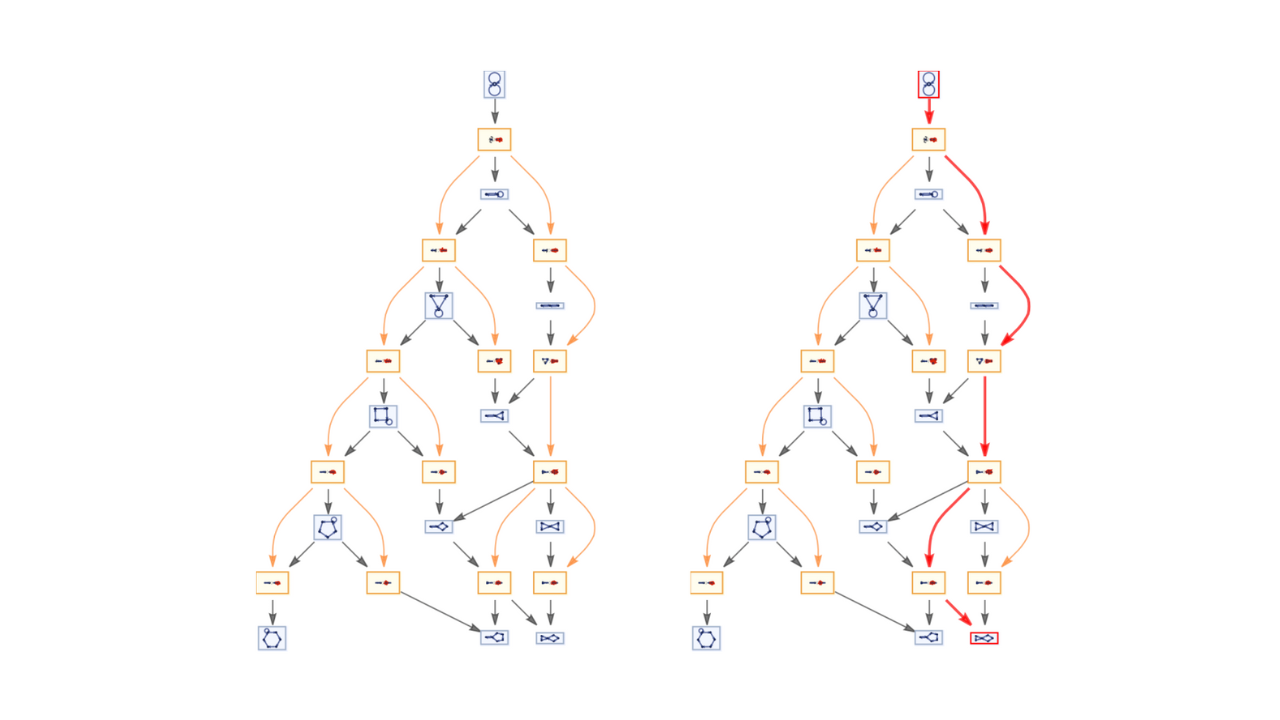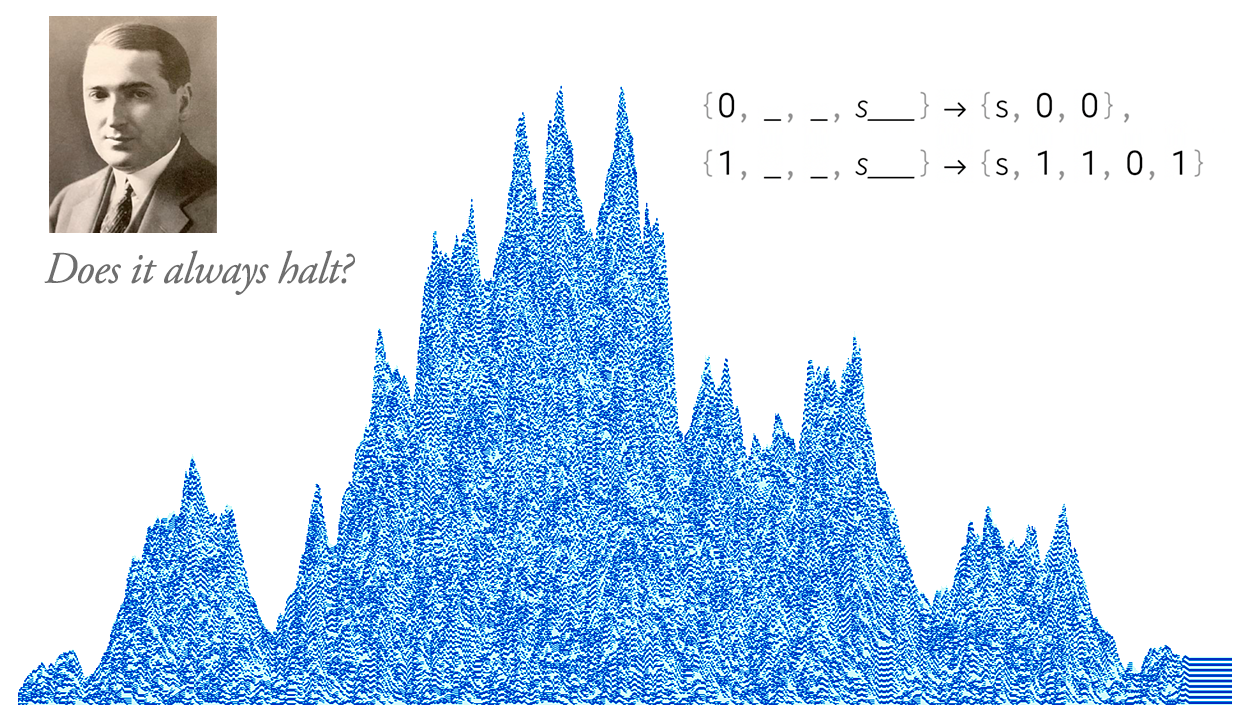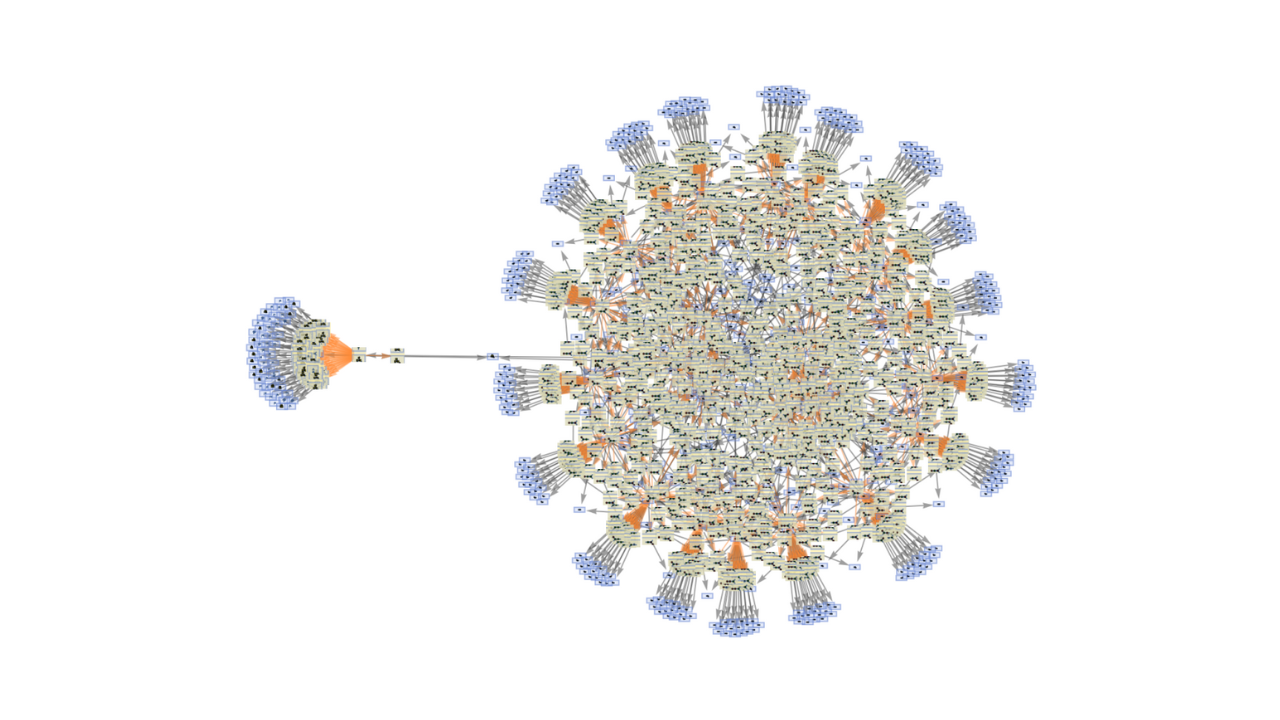Institute Output

The Problem of Distributed Consensus
Stephen Wolfram
In any decentralized system with computers, people, databases, measuring devices or anything else one can end up with different values or results at different “nodes”. But for all sorts of reasons one often wants to agree on a single “consensus” value, that one can for example use to “make a decision and go on to the next step”.

Fast Automated Reasoning over String Diagrams using Multiway Causal Structure
Jonathan Gorard, Manojna Namuduri, Xerxes D. Arsiwalla

Why Does the Universe Exist? Some Perspectives from Our Physics Project
Stephen Wolfram
Why does the universe exist? Why is there something rather than nothing? These are old and fundamental questions that one might think would be firmly outside the realm of science. But to my surprise I’ve recently realized that our Physics Project may shed light on them, and perhaps even show us the way to answers.

The Wolfram Physics Project: A One-Year Update
Stephen Wolfram
When we launched the Wolfram Physics Project a year ago today, I was fairly certain that—to my great surprise—we’d finally found a path to a truly fundamental theory of physics, and it was beautiful. A year later it’s looking even better. We’ve been steadily understanding more and more about the structure and implications of our models—and they continue to fit beautifully with what we already know about physics, particularly connecting with some of the most elegant existing approaches, strengthening and extending them, and involving the communities that have developed them.

ZX-Calculus and Extended Wolfram Model Systems II: Fast Diagrammatic Reasoning with an Application to Quantum Circuit Simplification
Jonathan Gorard, Manojna Namuduri, Xerxes D. Arsiwalla

A Little Closer to Finding What Became of Moses Schönfinkel, Inventor of Combinators
Stephen Wolfram
For most big ideas in recorded intellectual history one can answer the question: “What became of the person who originated it?” But late last year I tried to answer that for Moses Schönfinkel, who sowed a seed for what’s probably the single biggest idea of the past century: abstract computation and its universality.

What Is Consciousness? Some New Perspectives from Our Physics Project
Stephen Wolfram
Consciousness is a topic that’s been discussed and debated for centuries. But the surprise to me is that with what we’ve learned from exploring the computational universe and especially from our recent Physics Project it seems there may be new perspectives to be had, which most significantly seem to have the potential to connect questions about consciousness to concrete, formal scientific ideas.

After 100 Years, Can We Finally Crack Post’s Problem of Tag? A Story of Computational Irreducibility, and More
Stephen Wolfram
For Post, the failure to crack his system derailed his whole intellectual worldview. For me now, the failure to crack Post’s system in a sense just bolsters my worldview—providing yet more indication of the strength and ubiquity of computational irreducibility and the Principle of Computational Equivalence.

Multiway Turing Machines
Stephen Wolfram
Over the years I’ve studied the simplest ordinary Turing machines quite a bit, but I’ve barely looked at multiway Turing machines (also known as nondeterministic Turing machines or NDTMs). Recently, though, I realized that multiway Turing machines can be thought of as “maximally minimal” models both of concurrent computing and of the way we think about quantum mechanics in our Physics Project. So now this piece is my attempt to “do the obvious explorations” of multiway Turing machines.

Where Did Combinators Come From? Hunting the Story of Moses Schönfinkel
Stephen Wolfram
Looking back a century it’s remarkable enough that Moses Schönfinkel conceptualized a formal system that could effectively capture the abstract notion of computation. And it’s more remarkable still that he formulated what amounts to the idea of universal computation, and showed that his system achieved it.

Combinators and the Story of Computation
Stephen Wolfram
Moses Schönfinkel imagined that with combinators he was finding “building blocks for logic”. And perhaps the very simplicity of what he came up with makes it almost inevitable that it wasn’t just about logic: it was something much more general. Something that can represent computations. Something that has the germ of how we can represent the “machine code” of the physical universe.

Combinators: A Centennial View
Stephen Wolfram
Before Turing machines, before lambda calculus—even before Gödel’s theorem—there were combinators. They were the very first abstract examples ever to be constructed of what we now know as universal computation—and they were first presented on December 7, 1920. In an alternative version of history our whole computing infrastructure might have been built on them. But as it is, for a century, they have remained for the most part a kind of curiosity—and a pinnacle of abstraction, and obscurity.

ZX-Calculus and Extended Hypergraph Rewriting Systems I: A Multiway Approach to Categorical Quantum Information Theory
Jonathan Gorard, Manojna Namuduri, Xerxes D. Arsiwalla

Faster than Light in Our Model of Physics: Some Preliminary Thoughts
Stephen Wolfram
“So you think you have a fundamental theory of physics. Well, then tell us if warp drive is possible!” Despite the hopes and assumptions of science fiction, real physics has for at least a century almost universally assumed that no genuine effect can ever propagate through physical space any faster than light. But is this actually true? We’re now in a position to analyze this in the context of our model for fundamental physics. And I’ll say at the outset that it’s a subtle and complicated question, and I don’t know the full answer yet.

The Empirical Metamathematics of Euclid and Beyond
Stephen Wolfram
One of the many surprising things about our Wolfram Physics Project is that it seems to have implications even beyond physics. In our effort to develop a fundamental theory of physics it seems as if the tower of ideas and formalism that we’ve ended up inventing are actually quite general, and potentially applicable to all sorts of areas. One area about which I’ve been particularly excited of late is metamathematics—where it’s looking as if it may be possible to use our formalism to make what might be thought of as a “bulk theory of metamathematics”.

Exploring Rulial Space: The Case of Turing Machines
Stephen Wolfram
Let’s say we find a rule that reproduces physics. A big question would then be: “Why this rule, and not another?” I think there’s a very elegant potential answer to this question, that uses what we’re calling rule space relativity—and that essentially says that there isn’t just one rule: actually all possible rules are being used, but we’re basically picking a reference frame that makes us attribute what we see to some particular rule. In other words, our description of the universe is a sense of our making, and there can be many other—potentially utterly incoherent—descriptions, etc.

Event Horizons, Singularities and Other Exotic Spacetime Phenomena
Stephen Wolfram
In our models, space emerges as the large-scale limit of our spatial hypergraph, while spacetime effectively emerges as the large-scale limit of the causal graph that represents causal relationships between updating events in the spatial hypergraph. An important result is that (subject to various assumptions) there is a continuum limit in which the emergent spacetime follows Einstein’s equations from general relativity.

Some Quantum Mechanical Properties of theWolfram Model
Jonathan Gorard
By exploring hypergraph rules that deliberately break causal invariance, we show that the Wolfram Model’s multiway evolution functions like a quantum superposition whose geometry converges to projective Hilbert space. By proving that observers can “collapse” these histories via Knuth–Bendix completion—and deriving multiway analogues of Einstein’s equations, the path integral and the Schrödinger equation—we unify discrete spacetime, quantum mechanics and relativity within one framework.


How We Got Here: The Backstory of the Wolfram Physics Project
Stephen Wolfram
I’ve been saying it for decades: “Someday I’m going to mount a serious effort to find the fundamental theory of physics.” Well, I’m thrilled that today “someday” has come, and we’re launching the Wolfram Physics Project. And getting ready to launch this project over the past few months might be the single most intellectually exciting time I’ve ever had. So many things I’d wondered about for so long getting solved. So many exciting moments of “Surely it can’t be that simple?” And the dawning realization, “Oh my gosh, it’s actually going to work!”
